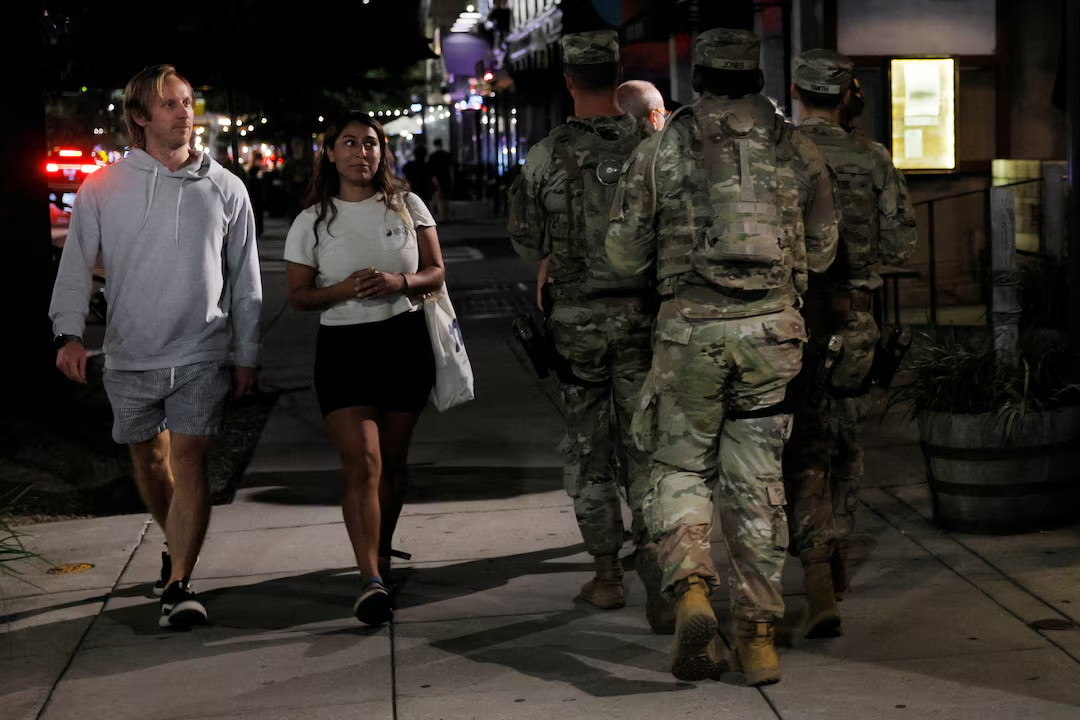The deployment of U.S. National Guard troops in various cities has sparked a debate over the extent of presidential authority and the use of military forces in domestic matters. President Donald Trump’s decision to arm National Guard troops patrolling Washington D.C. raises concerns about the escalation of the situation.
The move to arm the troops came after Trump declared a crime emergency in the district, leading to Defense Secretary Pete Hegseth authorizing the carrying of weapons. The Guard’s Joint Task Force-DC emphasized that the use of force would only be a last resort in response to imminent threats.
Trump’s plans to potentially extend the crime crackdown to cities like Chicago and Baltimore have faced opposition from Democratic leaders who question the legality and necessity of such deployments. The criticism is fueled by the decline in crime rates in these cities and concerns about the politicization of law enforcement.
The President’s authority to deploy National Guard troops under Title 10 of the U.S. Code has come under scrutiny, particularly in the context of sanctuary cities like Chicago. Legal challenges are expected if Trump attempts to use military forces to enforce federal laws in jurisdictions where local authorities do not cooperate with certain federal initiatives.
As the debate unfolds, the role of the military in domestic affairs and the balance of power between federal and local authorities remain central issues. Trump’s assertion of authority through Section 12406 is likely to face legal and political obstacles, highlighting the complexities of using the National Guard for law enforcement purposes.
In a time of heightened tensions and partisan divisions, the deployment of armed National Guard troops represents a contentious approach to addressing crime and public safety. The implications of these actions extend beyond immediate security concerns, raising broader questions about constitutional powers and the limits of executive authority.

